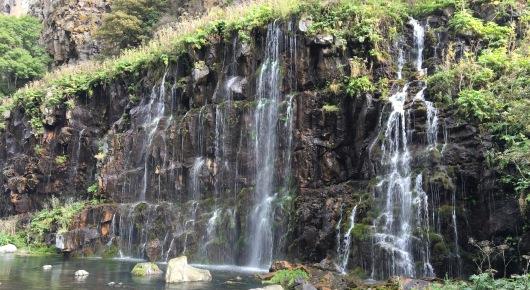Georgia bets on agritourism for scenic Tsalka region

Georgia’s southern Tsalka region looks forward to welcoming tourists, drawn by the area’s unique natural beauty and cultural monuments. An FAO project financed by Austria has been working with local and national authorities as Tsalka prepares to host agritourists and ecotourists.
During 2016, areas for support were identified with the help of a “local initiative group” with representatives of the local population and both private and nongovernmental sectors. The group analyzed the needs of local people and decided that Tsalka’s eye-catching natural landscapes and hospitable farmers were a good foundation for developing agritourism and ecotourism in the municipality.
Under a project entitled “Capacity Development of Agriculture of Georgia,” funded by the Austrian Development Agency, FAO’s team in Georgia recently completed work on the Tsalka Tourism Development Strategy and Action Plan (2016-2021). Improvements to tourism infrastructure and training for potential tourism service providers were also provided.
Three touristic routes were identified – one for hiking, one for bicycle touring, and one for automobile touring. The routes were laid out to include most of the important cultural and environmental points of interest in Tsalka – the famous Dashbash canyon, 22 cultural heritage sites including churches dating back as early as the 11th century, and guest houses and farms offering products for tourists.
The three routes with their various tourist attractions were plotted on a map. Information boards were installed in Tsalka’s municipal centre.
To make excursions more convenient and safe, Global Positioning System (GPS) coordinates were elaborated for each route. These include the trails and roads, attractions and facilities, cultural and natural monuments, lakes, waterfalls, canyons, camping sites, and sources of potable water.
Enhancing the capacity of the area’s tourism sector was another dimension of the programme. Some 25 potential tourism service providers – 12 women and 13 men – from 13 different villages of Tsalka municipality attended three days of intensive training. The course covered rural tourism and guesthouse operation standards, marketing and business plan development, and ecotourism principles.
“The pilot project shows the great potential for Eco-tourism in Georgia and how rural tourism could be established and promoted,” said FAO Representative in Georgia Raimund Jehle. “The focus is on income diversification in rural areas, and reduction of rural poverty, by empowering the rural population and developing tourism service facilities. This will positively influence rural development in Georgia.”
Tourism development activities in Tsalka are part of FAO’s Regional Initiative 1 and contribute to its strategic objective on reducing rural poverty. They also contribute to United Nations Sustainable Development Goals 1 and 8 – the elimination of poverty, and decent work and economic growth, respectively.
5 April 2017, Tbilisi, Georgia
